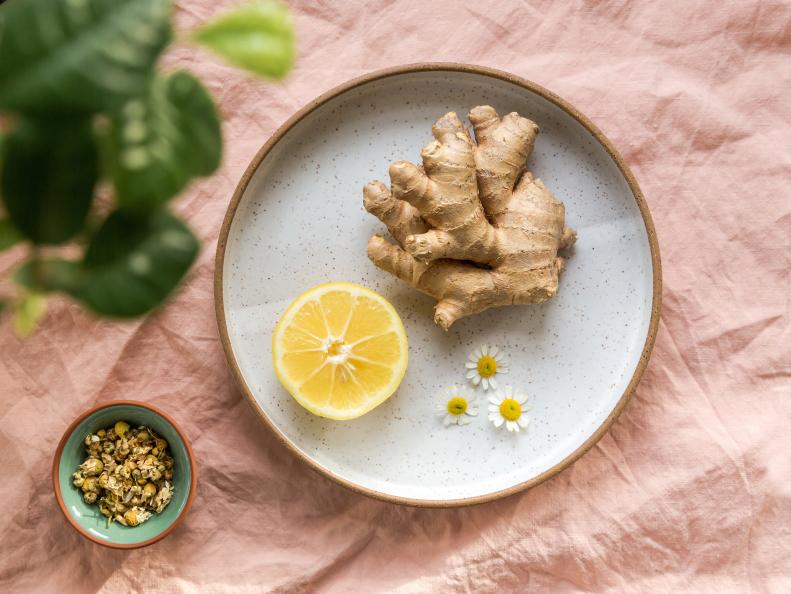1 / 11
Photo: Leesa Morales
Healthy and Versatile Ginger
Ginger root, a tropical plant of the rhizome family, is a staple ingredient around the world, used to enhance dishes both sweet and savory with its signature warm, spicy and fragrant flavor. Beyond its culinary applications, ginger is also used clinically to help ease the symptoms of nausea and indigestion, and to help support immune function and cardiovascular health, to name just a few. Today, we’ll discuss ten of ginger’s science-backed health benefits, and delicious ways you can incorporate this powerful spice into your diet.









